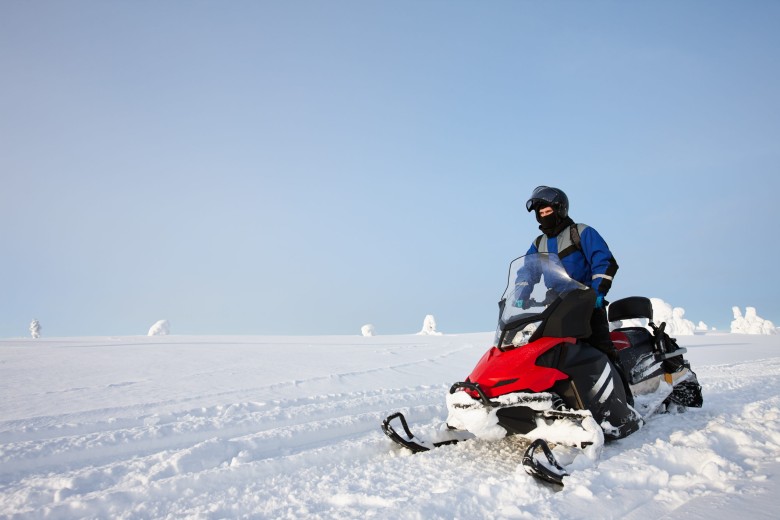Getting outdoors this winter? Don’t forget your helmet
October 8, 2020
Snow isn’t as soft as it looks – and Alaska health professionals say no matter how much we enjoy the outdoors; kids especially need to protect their brains.
Is your family hitting the slopes, a sledding hill, pond or snowmachine trails this winter? Alaska health professionals have one heartfelt request for you: Remember your helmet, and your kids’ helmets, too.
Too many Alaskans will hit their heads while playing outdoors this winter, including children and teenagers. Most of the time, those injuries — which can have permanent effects — are preventable.
Kids are at risk from winter falls
“Alaska is unique in that it’s the highest rate of traumatic brain injury in the nation,” said Susan Romero, an ANTHC pediatric critical care nurse practitioner who specializes in neurological trauma. “We see head injuries around skiing, snowmachining, ice skating — anything that you can fall and hit your head.”
Helmet use is common for activities like bicycling and hockey, but oftentimes parents don’t realize the injury risks common to other activities that Alaskans love.
“Obviously ice and snow is slippery and it is fun to play in, and we see an uptick in outdoor activities in the winter,” Romero said. “Snow seems like it’s soft until you’re a projectile. It doesn’t give as much as people believe it does.”
Kids are particularly at risk because of the way their bodies grow.
“Children have a larger head compared to body weight,” Romero said. “Smaller children, their head is like a projectile because the weight of their head is disproportionate to the weight of their body. When they fall, they’re going to fall forward and hit their heads.”
When a motor vehicle like a snowmachine comes into the equation, falling turns into flying.
The impact
While children experience a variety accidents while playing outside, head injuries are of extra concern for one reason: the brain. Head injuries impact the brain affecting the entire way human bodies work. Brain injuries can range from a mild concussion to a severe traumatic brain injury, or TBI.
“If you break something in your computer, the whole thing is affected,” Romero said. “Your brain is the computer.”
TBIs can permanently impact a person’s social, physical, cognitive, and emotional health. TBI patients can experience symptoms such as headaches, dizziness, vertigo, poor sleep, apathy, memory loss, difficulty decision making and problem-solving, decreased concentration, speech and language problems, changes to social behavior, impaired vision, and more.
“Social (health) is a big thing people don’t think of right out of the box,” Romero said. “It changes your behavior. You have injured the neurons in the brain. Your personality is affected by those neurons as well. They lose their ability to judge things.”
Someone with a TBI may be apathetic, she said, or they may have mood swings or make socially inappropriate comments. They may also be at increased risk for depression, anxiety, eating disorders, substance abuse and borderline personality disorder.
“Even a mild brain injury heightens the risk of experiencing another one the next time you hit your head, and the symptoms may not be immediately apparent,” said Ingrid Stevens ANTHC Injury Prevention Program Manager.
“Your executive functioning, your verbal functioning — oftentimes TBIs will go undiagnosed or not screened for,” Stevens said. “Sometimes those symptoms won’t be spotted until they show up years later in a behavioral health screening.”
Helmet use prevents lasting injury
In every age group except for children younger than 10 and adults older than 74, the state trauma registry ranked snowmachines as among the top 10 causes of hospitalization due to injury from 2013 through 2017.
While many winter sports would be safer with helmets, snowmachining is of particular concern simply because crashes or falls at higher speeds often result in more severe injuries.
Sledding ranked in ninth place for kids 5 to 9 years old, and a general “sports” was a leading cause of injury among ages 10 to 19.
“No matter what, fast movement on slippery surfaces — ATV, snowmachine, skiing, roller blading, bikes, skateboarding — when you fall, you’re likely going to hit your head,” Romero said. “The body heals, but the brain — when you bruise the brain, it leaves a lasting bruise.”
This story was told in partnership with the Anchorage Daily News. Related story from ANTHC and Anchorage Daily News: Winter safety refresher.
